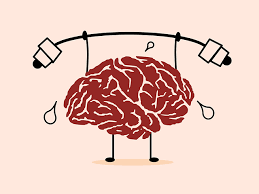The routines you follow every day, that is, what you eat, how you sleep, and even how you care for your teeth, can reveal a lot about your long-term health. Small habits often have lasting effects, influencing everything from heart health to oral hygiene. Regular visits to a dental practice Wilmslow can provide valuable insight into your overall wellness, as your mouth often reflects the condition of your body. Maintaining consistent routines, balanced nutrition, and good hygiene not only enhances your quality of life but also helps prevent chronic issues down the road. Your daily choices truly shape your future well-being.
How Nutrition Reflects Your Future Well-Being
 The foods you eat every day act as fuel for your body, influencing how efficiently it functions. A diet filled with whole foods such as fruits, vegetables, lean proteins, and grains promotes better energy levels, stronger immunity, and healthier digestion. On the other hand, frequent consumption of processed foods or sugary drinks can lead to long-term issues such as obesity, diabetes, and heart disease. Your daily eating habits also affect mood and concentration, showing that nutrition impacts both physical and mental wellness. Making conscious food choices sets a foundation for sustained health and vitality.
The foods you eat every day act as fuel for your body, influencing how efficiently it functions. A diet filled with whole foods such as fruits, vegetables, lean proteins, and grains promotes better energy levels, stronger immunity, and healthier digestion. On the other hand, frequent consumption of processed foods or sugary drinks can lead to long-term issues such as obesity, diabetes, and heart disease. Your daily eating habits also affect mood and concentration, showing that nutrition impacts both physical and mental wellness. Making conscious food choices sets a foundation for sustained health and vitality.
The Role of Sleep in Longevity
Sleep often takes a back seat in busy lives, yet it plays a vital role in maintaining overall health. Regular, quality sleep allows the body to repair tissues, balance hormones, and strengthen memory. Chronic sleep deprivation, even by just a few hours each night, can raise the risk of high blood pressure, depression, and weight gain. It also weakens the immune system, making you more vulnerable to illness. Establishing a consistent sleep schedule and creating a calm bedtime routine are simple habits that significantly improve long-term health and daily performance.
Physical Activity as an Investment in the Future
Daily movement is one of the most powerful predictors of future well-being. You do not need to spend hours at the gym; even regular walks, stretching, or light exercise improve circulation, boost mood, and maintain muscle strength. Physical activity reduces the risk of chronic diseases like diabetes and heart conditions while also supporting mental clarity. It keeps joints flexible and bones strong, allowing you to remain active as you age. Building movement into your routine, whether through morning workouts or evening strolls, helps maintain balance between fitness and relaxation.
The Impact of Stress Management on Health

How you handle stress today can influence how your body functions years from now. Constant stress releases hormones such as cortisol that can raise blood pressure, strain the heart, and interfere with digestion. It can also affect sleep and increase cravings for unhealthy foods. Developing stress-relief habits like meditation, deep breathing, or time spent outdoors creates resilience that protects both mental and physical health. Consistently managing stress not only improves your mood but also supports longevity and emotional balance.
The Importance of Routine Checkups and Preventive Care
Another habit that reflects your long-term health is how often you visit healthcare professionals. Regular medical and dental checkups catch potential problems early before they become serious. These visits also help track vital indicators such as blood pressure, cholesterol, and blood sugar levels. Preventive care, combined with healthy habits at home, reduces the likelihood of costly or painful health issues later. It shows commitment to your own well-being and ensures that you can enjoy a longer, more active life.
Your daily habits are the blueprint of your future health. By paying attention to nutrition, sleep, physical activity, stress management, and regular checkups, you create a strong foundation for lifelong wellness. Long-term health is not built overnight but through consistency and self-awareness. The small routines you follow today determine the strength, energy, and happiness you will enjoy in the years ahead, proving that good habits truly are the best investment in yourself.…
Read More








 While there is only a handful of extreme cases of obesity where people become completely immobile, it is a real and growing problem. A study in the Journal of Clinical Endocrinology & Metabolism found that 11 percent of obese people have what’s known as “severe obesity.” This means they are over 100 pounds over their ideal body weight or have a BMI (body mass index) of 40 or higher. When people become severely obese, they often have difficulty moving around and doing everyday activities like walking, climbing stairs, or even getting out of a chair. This can lead to a condition called “obesity immobility syndrome,” which can be fatal. That’s why many are now using diet pills to avoid this problem.
While there is only a handful of extreme cases of obesity where people become completely immobile, it is a real and growing problem. A study in the Journal of Clinical Endocrinology & Metabolism found that 11 percent of obese people have what’s known as “severe obesity.” This means they are over 100 pounds over their ideal body weight or have a BMI (body mass index) of 40 or higher. When people become severely obese, they often have difficulty moving around and doing everyday activities like walking, climbing stairs, or even getting out of a chair. This can lead to a condition called “obesity immobility syndrome,” which can be fatal. That’s why many are now using diet pills to avoid this problem. Obesity is a major risk factor for several cancer types, including ovarian, pancreatic, and endometrial cancer. Obesity is also a risk factor for breast cancer and colorectal cancer. In fact, obesity is thought to account for up to 20 percent of all cases of breast cancer. It’s Time to Take Action If you are obese or overweight, it’s time to take action. Losing weight can help reduce your risk for many of the health problems associated with obesity.
Obesity is a major risk factor for several cancer types, including ovarian, pancreatic, and endometrial cancer. Obesity is also a risk factor for breast cancer and colorectal cancer. In fact, obesity is thought to account for up to 20 percent of all cases of breast cancer. It’s Time to Take Action If you are obese or overweight, it’s time to take action. Losing weight can help reduce your risk for many of the health problems associated with obesity.
 Another great benefit of gaining muscle mass is that it decreases your risk of developing diseases such as obesity, type II diabetes, and heart disease. This is because muscle tissue is more efficient at using glucose and fat for energy. It means that there will be less build-up of these substances in your body, which can lead to the development of these chronic diseases.
Another great benefit of gaining muscle mass is that it decreases your risk of developing diseases such as obesity, type II diabetes, and heart disease. This is because muscle tissue is more efficient at using glucose and fat for energy. It means that there will be less build-up of these substances in your body, which can lead to the development of these chronic diseases.
 One of the worst things you can do when trying to lose belly fat is smoke cigarettes. Smoking is terrible for your overall health, but it also increases your risk of developing obesity and other weight-related problems. This is because smoking increases your appetite and makes you more likely to eat unhealthy foods.
One of the worst things you can do when trying to lose belly fat is smoke cigarettes. Smoking is terrible for your overall health, but it also increases your risk of developing obesity and other weight-related problems. This is because smoking increases your appetite and makes you more likely to eat unhealthy foods. Eating the wrong foods is another mistake people make when losing weight. You need to eat healthy, nutritious foods to help your body burn fat.
Eating the wrong foods is another mistake people make when losing weight. You need to eat healthy, nutritious foods to help your body burn fat. Stress is another factor that can lead to weight gain. When you’re stressed, your body releases the hormone cortisol, increasing your appetite and making you crave unhealthy foods.
Stress is another factor that can lead to weight gain. When you’re stressed, your body releases the hormone cortisol, increasing your appetite and making you crave unhealthy foods. Muscle building requires one to take a lot of proteins. However, you need to consume the right amount of proteins and have a
Muscle building requires one to take a lot of proteins. However, you need to consume the right amount of proteins and have a  When working out, ensure that you focus on quality over quantity. It is pointless to do multiple reps but using a bad posture. In the worst-case scenario, you are likely to injure yourself during training.
When working out, ensure that you focus on quality over quantity. It is pointless to do multiple reps but using a bad posture. In the worst-case scenario, you are likely to injure yourself during training. Do you want to achieve your goals faster? How about hiring a bodybuilding coach? When you hire a professional to help you train, they will ensure you maintain and follow the training plan. Since you will spend money on their services, the chances are high that you will dedicate yourself to achieving desired results.
Do you want to achieve your goals faster? How about hiring a bodybuilding coach? When you hire a professional to help you train, they will ensure you maintain and follow the training plan. Since you will spend money on their services, the chances are high that you will dedicate yourself to achieving desired results.
 Your oral health should not be left to chance. Before settling on a dentist, carry out a background search and find out their extent of qualifications. Make sure that the practitioner has all the required credentials. You want to ensure that you are in safe hands, especially if you need services like dental surgery.
Your oral health should not be left to chance. Before settling on a dentist, carry out a background search and find out their extent of qualifications. Make sure that the practitioner has all the required credentials. You want to ensure that you are in safe hands, especially if you need services like dental surgery. Like in any other medical field, consider the experience of the doctor. The longer he has been in practice, the better. The chances of having a successful outcome in your procedure are increased when you visit an experienced doctor.
Like in any other medical field, consider the experience of the doctor. The longer he has been in practice, the better. The chances of having a successful outcome in your procedure are increased when you visit an experienced doctor.



 By microdosing albino penis envy, you can derive energy sans the hallucinations. Mushrooms are rich sources of energy but are not being utilized because of their psychoactive effects. According to microdosers, they felt energized every after every microdosing session. This makes albino penis mushrooms excellent for distressed conditions and possibly, weight loss because a user will be energized to exercise.
By microdosing albino penis envy, you can derive energy sans the hallucinations. Mushrooms are rich sources of energy but are not being utilized because of their psychoactive effects. According to microdosers, they felt energized every after every microdosing session. This makes albino penis mushrooms excellent for distressed conditions and possibly, weight loss because a user will be energized to exercise. Microdosing albino penis envy can help in alleviating withdrawal from smoking, alcohol, and substance abuse. One who has recently withdrawn from these vices can undergo a state of depression. In worst cases, of substance abuse, constant seizures will also be experienced. By microdosing mushrooms, you can still feel good because of the sense of calm and boost of energy that it gives.
Microdosing albino penis envy can help in alleviating withdrawal from smoking, alcohol, and substance abuse. One who has recently withdrawn from these vices can undergo a state of depression. In worst cases, of substance abuse, constant seizures will also be experienced. By microdosing mushrooms, you can still feel good because of the sense of calm and boost of energy that it gives.
 It is advisable to eat lots of protein. There are many reasons for this. When you increase your protein intake, you can boost your satiety. That is because you only eat when you are hungry. Thus, when you increase satiety, it becomes easy to lose weight. By eating adequate protein, you maintain your metabolic rate. The recommended protein sources include game meat, dairy products, seafood, legumes, and eggs.
It is advisable to eat lots of protein. There are many reasons for this. When you increase your protein intake, you can boost your satiety. That is because you only eat when you are hungry. Thus, when you increase satiety, it becomes easy to lose weight. By eating adequate protein, you maintain your metabolic rate. The recommended protein sources include game meat, dairy products, seafood, legumes, and eggs. It is advisable to ensure most of your beverages are calorie-free. Coffee and green tea are rich in antioxidants and polyphenols that make them great for your health. Thus, you should drink caffeine if you are not sensitive to it. If you want to lose weight, then you should drink adequate amounts of water.
It is advisable to ensure most of your beverages are calorie-free. Coffee and green tea are rich in antioxidants and polyphenols that make them great for your health. Thus, you should drink caffeine if you are not sensitive to it. If you want to lose weight, then you should drink adequate amounts of water.
 Melanotan has similar properties to the melanocyte-stimulating hormone. You should note that this is the hormone that produces skin-tanning pigments. Other than using it on the skin, it can be used as an oral supplement and treat ED. Researchers suggest that melanotan 2 should be administered as a shot under your skin. That is the case if you want to have long-lasting erections. Unfortunately, it has been found to have some side effects such as nausea. Therefore, the supplement is not recommended if you have underlying medical conditions.
Melanotan has similar properties to the melanocyte-stimulating hormone. You should note that this is the hormone that produces skin-tanning pigments. Other than using it on the skin, it can be used as an oral supplement and treat ED. Researchers suggest that melanotan 2 should be administered as a shot under your skin. That is the case if you want to have long-lasting erections. Unfortunately, it has been found to have some side effects such as nausea. Therefore, the supplement is not recommended if you have underlying medical conditions.
 The foods we eat not only feed our fat cells but also decide what kind of inner garden we create in our gut. This garden is full of bugs that determine more than you can imagine about your emotional and psychological health and well-being. Keeping your gut bacteria healthy is one of the most important things you can do to get and stay healthy. The intestinal wall accommodates most of the cells that build up the immune system. Today, many seemingly unrelated conditions are triggered by intestinal problems.
The foods we eat not only feed our fat cells but also decide what kind of inner garden we create in our gut. This garden is full of bugs that determine more than you can imagine about your emotional and psychological health and well-being. Keeping your gut bacteria healthy is one of the most important things you can do to get and stay healthy. The intestinal wall accommodates most of the cells that build up the immune system. Today, many seemingly unrelated conditions are triggered by intestinal problems. The foods we eat not only feed our fat cells but also decide what kind of inner garden we create in our gut. This garden is full of bugs that determine more than you can imagine about your emotional and psychological health and well-being. Keeping your gut bacteria healthy is one of the most important things you can do to get and stay healthy. The intestinal wall accommodates most of the cells that make up the immune system. Digestive problems cannot be linked to arthritis, allergies, autoimmune diseases, mental illness, and cancer. Today, many seemingly unrelated conditions are triggered by intestinal problems.
The foods we eat not only feed our fat cells but also decide what kind of inner garden we create in our gut. This garden is full of bugs that determine more than you can imagine about your emotional and psychological health and well-being. Keeping your gut bacteria healthy is one of the most important things you can do to get and stay healthy. The intestinal wall accommodates most of the cells that make up the immune system. Digestive problems cannot be linked to arthritis, allergies, autoimmune diseases, mental illness, and cancer. Today, many seemingly unrelated conditions are triggered by intestinal problems. The secret of a healthy gut lies in the presence of a large and diverse community of bacteria. This diversity is different for each person. It is determined by our genetics, the way we are born (by normal carriage or cesarean section), and the foods we eat. A healthy balance of fiber, protein,
The secret of a healthy gut lies in the presence of a large and diverse community of bacteria. This diversity is different for each person. It is determined by our genetics, the way we are born (by normal carriage or cesarean section), and the foods we eat. A healthy balance of fiber, protein, 

 CBD Gummies still serve the same purpose any CBD Oil product would perform. It reliefs pain reduces stress and anxiety, manages sleeping disorders, among other conditions. These do not deprive it the great taste any gummies would have. The taste attracts many people to buy it, besides the flavors that come along with the gummies give them the natural flavor and a person can choose from a wide variety of flavors suitable for them.
CBD Gummies still serve the same purpose any CBD Oil product would perform. It reliefs pain reduces stress and anxiety, manages sleeping disorders, among other conditions. These do not deprive it the great taste any gummies would have. The taste attracts many people to buy it, besides the flavors that come along with the gummies give them the natural flavor and a person can choose from a wide variety of flavors suitable for them.

 When walking successfully on the slackline, you need intense and undivided concentration. When you concentrate fully during this activity, you will conclude it successfully. However, you need to understand that any slightest deviation from the walk can cause you to fall off. If you conduct daily practice, then this will end up enhancing your attention span. Also, this will provide you more control over your mind and body, which is useful for day-to-day activities.
When walking successfully on the slackline, you need intense and undivided concentration. When you concentrate fully during this activity, you will conclude it successfully. However, you need to understand that any slightest deviation from the walk can cause you to fall off. If you conduct daily practice, then this will end up enhancing your attention span. Also, this will provide you more control over your mind and body, which is useful for day-to-day activities.
 Girls, nothing gets better than waist training. From several shared experiences, weight training is, by far, a practical solution to accent, highlight, and keep your body in shape. Even better, waist training results might be forthcoming in a matter of days. If you are thinking about incorporating some aspect of waist training to your fitness routine, here are some noteworthy facts that will help you be at your best.
Girls, nothing gets better than waist training. From several shared experiences, weight training is, by far, a practical solution to accent, highlight, and keep your body in shape. Even better, waist training results might be forthcoming in a matter of days. If you are thinking about incorporating some aspect of waist training to your fitness routine, here are some noteworthy facts that will help you be at your best. Depression has now become a very major problem in the world. Most people are now suffering from it. The worst part is that some people don’t even know that they are suffering from it. Marijuana contains endocannabinoid compounds that have mood-stabilizing capabilities. It can, therefore, ease depression and this is good as it means that
Depression has now become a very major problem in the world. Most people are now suffering from it. The worst part is that some people don’t even know that they are suffering from it. Marijuana contains endocannabinoid compounds that have mood-stabilizing capabilities. It can, therefore, ease depression and this is good as it means that 

 Before you use your CBD oil, you should first ensure that you shake the bottle. You can then take it orally or apply it on your skin. Most CBD oil products usually come with a stopper to make it easy to take it orally by placing it under your tongue. When you take it orally, you shouldn’t swallow it immediately. Hold the oil under your tongue for about a minute before you swallow.
Before you use your CBD oil, you should first ensure that you shake the bottle. You can then take it orally or apply it on your skin. Most CBD oil products usually come with a stopper to make it easy to take it orally by placing it under your tongue. When you take it orally, you shouldn’t swallow it immediately. Hold the oil under your tongue for about a minute before you swallow.


 Compassion and Honesty
Compassion and Honesty






 How Yoga Roller on Amazon Contributes to Your Weight Loss
How Yoga Roller on Amazon Contributes to Your Weight Loss Assistant Pilates
Assistant Pilates
 for many who have a busy schedule. You should choose your healthy meal delivery service carefully to enjoy what they have to offer. Here are some things you should look out for when selecting one.
for many who have a busy schedule. You should choose your healthy meal delivery service carefully to enjoy what they have to offer. Here are some things you should look out for when selecting one. a particular meal delivery service respond to their customers? Do they deliver their orders in real time? You must go for one that treats its customers better. They should offer quality services that will ensure you stick to a healthy diet plan.…
a particular meal delivery service respond to their customers? Do they deliver their orders in real time? You must go for one that treats its customers better. They should offer quality services that will ensure you stick to a healthy diet plan.…
 Drinking alcohol may seem as if it can make you feel better about your problems but this is something that does not last. When you start to sober up you may be feeling worse than you did before. Drinking is only masking the problem, and you will be better off trying to confront the problem so that you can fix it. Becoming reliant on alcohol is something that you want to avoid.
Drinking alcohol may seem as if it can make you feel better about your problems but this is something that does not last. When you start to sober up you may be feeling worse than you did before. Drinking is only masking the problem, and you will be better off trying to confront the problem so that you can fix it. Becoming reliant on alcohol is something that you want to avoid.
